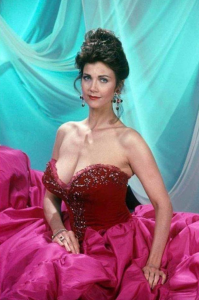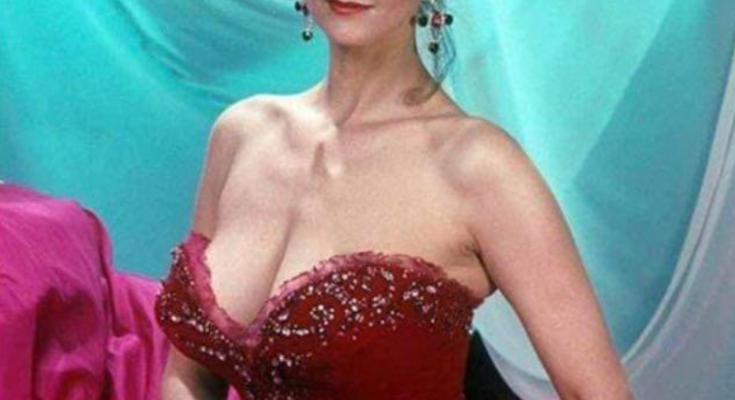
Lynda Carter’s Enduring Legacy: A Journey of Strength and Authenticity
For generations, Lynda Carter has been more than just an actress, singer, or beauty queen — she has been a symbol of grace, empowerment, and authenticity. Best known for bringing Wonder Woman to life on television in the 1970s, Carter became a cultural icon, embodying both strength and compassion in a way that transcended the screen. But her story goes far beyond the golden lasso and red boots. Her journey — through fame, personal trials, reinvention, and advocacy — is a powerful reflection of resilience, authenticity, and timeless influence.
The Birth of a Star
Born in Phoenix, Arizona, in 1951, Lynda Jean Cordova Carter grew up surrounded by music and creativity. Her heritage — a blend of Mexican, Spanish, and English roots — shaped her sense of identity and individuality. Even as a child, she stood out. By her teens, she was performing in local bands and demonstrating a natural confidence that would soon take her far beyond her hometown.
In 1972, at just 21 years old, Lynda was crowned Miss World USA, earning national recognition and setting her on a path toward Hollywood. Yet, even then, she carried herself with a quiet humility and authenticity that separated her from the typical beauty queen image. When asked about her ambitions, she didn’t speak of fame or glamour — she spoke of purpose. That sense of purpose would become a defining thread throughout her life.
Becoming Wonder Woman
When Wonder Woman premiered in 1975, the world wasn’t ready for what Lynda Carter would bring to the role. Television had never seen a female superhero portrayed with such charisma, intelligence, and heart. Carter’s version of Diana Prince wasn’t just a warrior — she was empathetic, wise, and deeply human.
Her performance resonated with millions of viewers, particularly women and young girls who saw, perhaps for the first time, a female hero who was both powerful and kind. She didn’t need to sacrifice her femininity to be strong — a radical idea in an era dominated by male superheroes.
Lynda once said, “I never thought of Wonder Woman as a superhero. I saw her as a woman who believed in love, justice, and the power of truth.” That philosophy became the soul of her performance.
Behind the scenes, Carter performed many of her own stunts, pushing boundaries in an industry that rarely gave women such agency. Her portrayal became an enduring symbol of female empowerment, inspiring generations of actresses, athletes, and everyday women to embrace their inner strength.
Even today, when fans think of Wonder Woman — despite the success of modern portrayals like Gal Gadot’s — it’s Lynda Carter’s serene confidence and radiant smile that come to mind. She didn’t just play a hero; she became one in the cultural imagination.
Life Beyond the Cape
When Wonder Woman ended in 1979, Carter faced the challenge that many actors encounter after defining roles — how to move forward without being typecast. Rather than chasing type roles or fading into nostalgia, she took control of her narrative.
She transitioned into music, returning to her first love. Her sultry voice and commanding stage presence earned her critical praise, leading to successful live performances and recordings. Over the years, she released multiple albums, blending jazz, pop, and blues — a testament to her versatility.
Lynda also took on new acting projects, appearing in films and television roles that showcased her range beyond the superhero image. From dramatic parts to comedic cameos, she demonstrated both depth and humor, always maintaining the authenticity that fans admired.
Still, she never distanced herself from Wonder Woman. Instead, she embraced her legacy. She appeared at comic conventions, charity events, and fan gatherings — always gracious, always grateful. Her relationship with fans has remained one of mutual respect and genuine affection.
The Personal Struggles and Triumphs
Behind the glamour and legacy, Lynda Carter’s life has included profound challenges. In interviews, she has been open about her battles with alcoholism, describing the years of self-doubt and pain that accompanied her struggle. But her decision to speak publicly about recovery marked one of her most powerful transformations.
“Every day I wake up grateful,” she once said. “Grateful that I made it through, and that I get to live life with honesty.”
Her openness helped destigmatize addiction and recovery for many fans who admired her vulnerability. By sharing her truth, she reminded the world that strength isn’t about perfection — it’s about perseverance.
Carter also experienced deep personal loss. In 2021, her beloved husband, Robert Altman, passed away after nearly four decades of marriage. The two shared a rare kind of partnership built on love, loyalty, and mutual respect. Lynda’s public tributes to him reflected her immense heart and her enduring faith in love.
Through grief, she once again found strength in creativity. She poured her emotions into music, releasing songs that honored her husband’s memory and her journey toward healing. Her art became a reflection of resilience through vulnerability, an echo of the Wonder Woman spirit she carried within.
Advocacy and Inspiration
Over the years, Lynda Carter has used her platform to advocate for women’s rights, LGBTQ+ equality, and representation in media. She has been an outspoken voice for self-acceptance and authenticity, encouraging people — especially women — to reject impossible standards and embrace their individuality.
She’s also lent her voice to organizations supporting veterans, addiction recovery programs, and causes related to women’s empowerment. Her message has always been consistent: real strength comes from kindness, empathy, and truth.
Carter’s activism extends beyond speeches. She has participated in political initiatives, spoken out against gender inequality, and consistently highlighted the importance of compassion in leadership. For her, advocacy isn’t about fame — it’s about responsibility.
A Legacy that Continues to Shine
Today, Lynda Carter remains a vibrant force in entertainment and culture. Even as she steps into her 70s, she continues to perform, create, and inspire. Her cameo appearances — including her role in Wonder Woman 1984 — were met with standing ovations from fans who still see her as the embodiment of grace and courage.
Her legacy endures not only because of the character she portrayed, but because of the values she represents: strength without arrogance, beauty without vanity, and authenticity without compromise. She showed that women could be heroes, leaders, and nurturers all at once — a message that continues to resonate across generations.
And while many know her as the face of Wonder Woman, Lynda Carter’s greatest superpower might just be her humanity. She’s a woman who has lived boldly, loved deeply, stumbled, risen, and continued forward — with elegance and authenticity.
The Woman Behind the Legend
Lynda Carter’s journey is more than a career — it’s a life well-lived, filled with courage, art, and purpose. She reminds us that icons aren’t defined by perfection but by how they make others feel.
For millions, she was the first superhero they ever looked up to. For others, she became a symbol of perseverance and integrity. And for herself, she remains a woman continually evolving — an artist, mother, and advocate who still believes in the power of truth and compassion.
As she once said in a recent interview, “I never set out to be anyone’s hero. I just tried to live my life honestly. But if being myself helped others believe in themselves, then I think that’s the greatest reward of all.”
Lynda Carter’s story is, at its core, a celebration of authentic strength — not the kind that conquers with might, but the kind that heals, inspires, and endures. Decades after she first spun into that iconic costume, her legacy still reminds us that being a hero isn’t about superpowers. It’s about staying true to who you are

